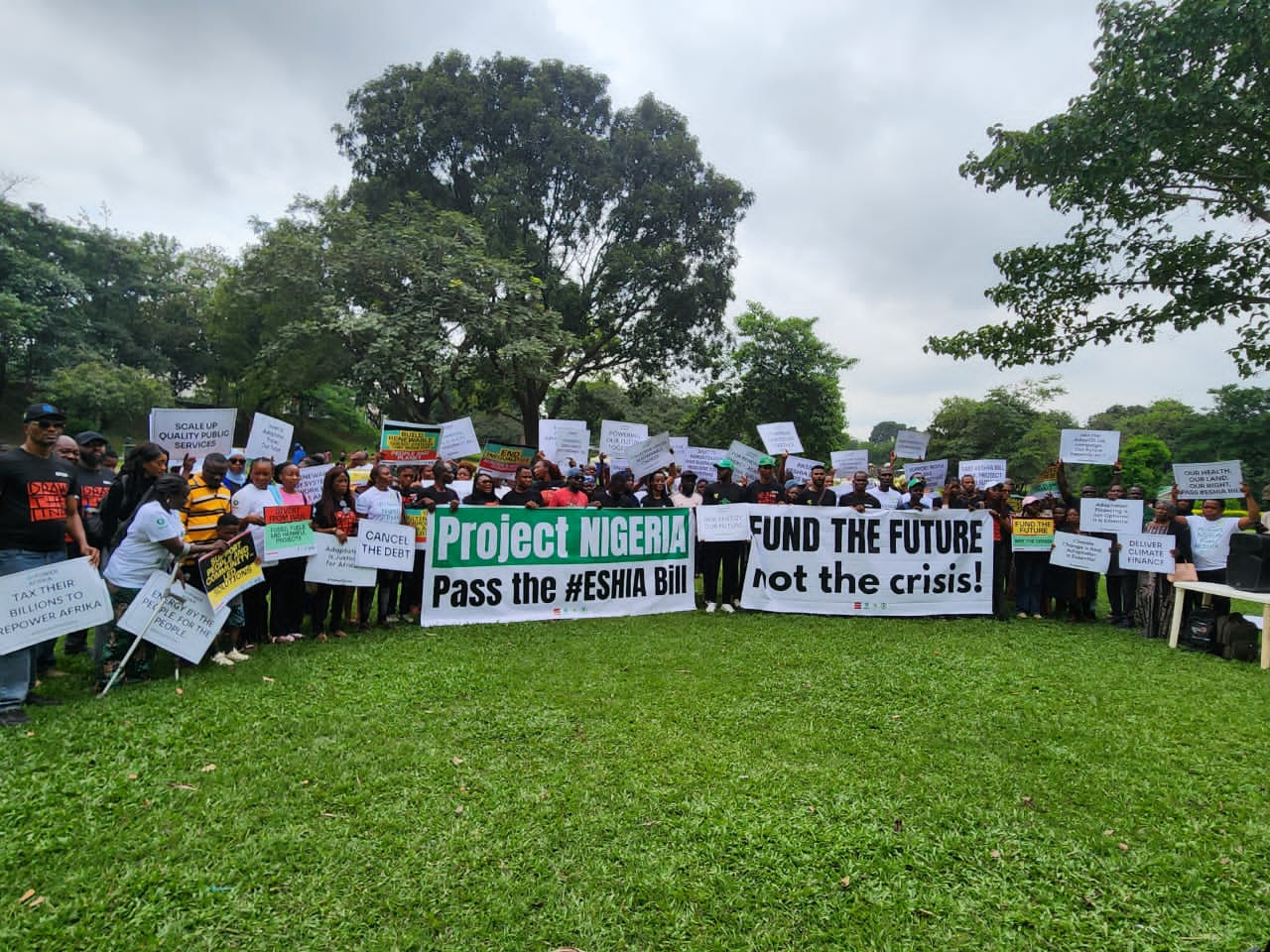By Bavoriat Clara
In a bid to amplify the global demand for urgent action against climate change, Dr. Michael Terungwa David, Executive Director of the Global Initiative for Food Security and Ecosystem Preservation, has called on Nigerians to unite in drawing the line against climate injustice, poverty, and environmental destruction.
Dr. David, who spoke during the #DrawTheLine Abuja Climate March 2025, explained that the event was part of a worldwide Day of Global Climate Action taking place simultaneously in several countries across different continents. According to him, the campaign is a response to the rising threats of climate-induced disasters that have continued to affect vulnerable communities, including floods, wildfires, heatwaves, food insecurity, and deepening poverty.
“We are drawing the line against the use of public funds to support destructive industries that fuel floods, fires, heatwaves, hunger, and poverty,” he said. “Instead, we demand that public resources be invested in building a safer, fairer, and more sustainable future for all Nigerians.”
Dr. David outlined the core demands of the march to include:
Increased climate finance, especially for adaptation projects that will protect vulnerable communities from the worsening impacts of climate change.
Debt cancellation for climate purposes, which will allow African countries such as Nigeria to channel more resources into building resilience and sustainability.
Protection of the territories of Indigenous Peoples and traditional communities who are often the custodians of natural resources.
Support for community-led solutions that are practical and tailored to local realities.
Speedy passage of the Environmental, Social and Health Impact Assessment Bill currently before the National Assembly.
Active citizen participation in holding elected leaders accountable, so that the future of the nation is not mortgaged to industries that profit from environmental destruction.
Lending his voice to the campaign, Dr. Kenneth Akpan, who represented the Country Director of OXFAM in Nigeria, Mr. John Makina, stated that the international humanitarian and development organization is backing the movement not only in Nigeria but in several countries across Africa and beyond. He stressed that the campaign is highlighting issues of climate injustice, poverty, and gender inequality that are often under-reported.
“Without the commitment of state and local governments, Nigeria cannot meet its national and international climate pledges,” Dr. Akpan warned. “OXFAM is providing financial support, capacity building, and other resources to strengthen this campaign. We are also urging state governments to design and adopt their own climate policies, as has been done in Adamawa State, so that the federal government’s commitments under the Paris Agreement and its Nationally Determined Contributions can become a reality.”
From the youth perspective, Ifebuche Chukwu Fransisca Ede, Project Coordinator for OXFAM Climate Justice Youth Ambassadors, said young people remain central to the fight for climate justice because of their numbers, energy, and innovative ideas.
“The future belongs to us, and young people must sit at the table where decisions are made,” she declared. “We cannot continue to be excluded. Young Nigerians are already creating solutions, from recycling and transforming waste into reusable products to inventing climate-smart agricultural practices. What we need now is for government and institutions to fund and support these innovations so they can have greater impact.”
Also speaking, Pauline Jingali, a woman farmer, shared her experience on how climate change is disrupting agricultural activities, particularly for rural women. She lamented that unpredictable rainfall patterns, prolonged droughts, and sudden floods have made farming increasingly difficult, threatening food production and rural livelihoods.
“We, the women farmers, now struggle with drought when we are supposed to plant, and too much rain when the crops are expected to grow. Many of us have turned to small-scale survival farming, but the challenges are enormous,” she said. “We need the government to support us with irrigation, farm inputs, pest and disease control, and improved access to markets, so that we can continue to feed our families and contribute to the economy.”
The Abuja Climate March also placed Nigeria’s demands in the context of international climate negotiations. Campaigners noted that the call for debt cancellation and increased adaptation finance echoes the commitments made under the Paris Agreement and the Glasgow Climate Pact, where developed nations pledged to provide one hundred billion dollars annually to support developing countries facing climate impacts.
They also linked their demands to the forthcoming United Nations Climate Change Conference (COP30) in Brazil, stressing that African countries must present a united front to secure financing, technology transfer, and recognition of loss and damage already suffered by vulnerable populations.
Activists further emphasized that Nigeria, as Africa’s largest economy, has both a responsibility and an opportunity to lead the continent in pushing for stronger climate justice measures on the global stage. They argued that climate change is not just an environmental issue but also a matter of social equity, gender justice, and human rights, particularly for communities already struggling with poverty and underdevelopment.
The Abuja Climate March concluded with participants urging Nigerian leaders to prioritize the environment above political interests, ensure equity in climate policies, and protect future generations from the devastating impacts of climate change. They stressed that environmental protection is not just a scientific or economic issue, but a matter of justice, survival, and dignity for millions of people.
